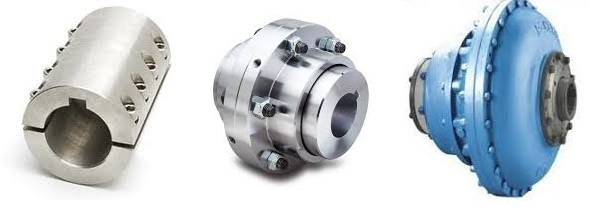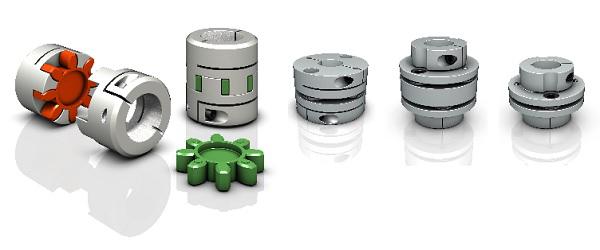Marine Flexible Prop Shaft Couplings
Introduction to Marine Flexible Prop Shaft Couplings
Marine flexible prop shaft couplings are critical components in maritime engineering, ensuring seamless power transmission between the engine and the propeller. These couplings absorb vibrations and misalignments, protecting the drivetrain and enhancing overall performance.
The Importance of Flexible Couplings in Marine Applications
Flexible couplings play an essential role in marine applications by accommodating angular, parallel, and axial misalignments. This flexibility helps mitigate the impact of engine vibrations, which can cause significant wear and tear on the propulsion system.
Types of Marine Flexible Prop Shaft Couplings
Several types of flexible couplings are used in marine applications, including elastomeric, disc, and gear couplings. Each type has unique characteristics catering to specific operational requirements and environmental conditions.
Elastomeric Couplings
Elastomeric couplings use a flexible element, usually made of rubber or a similar material, to absorb vibrations and misalignments. These couplings are commonly used due to their simplicity and cost-effectiveness.
Disc Couplings
Disc couplings consist of multiple thin metallic discs that flex under load, allowing misalignment accommodation while maintaining high torsional rigidity. They are ideal for high-performance marine applications.
Gear Couplings
Gear couplings use toothed hubs and sleeves to transmit torque and accommodate misalignments. They are known for their robustness and ability to handle high torque loads, making them suitable for heavy-duty marine engines.
Advantages of Using Marine Flexible Prop Shaft Couplings
Marine flexible prop shaft couplings offer several advantages, including enhanced vibration damping, reduced maintenance requirements, and improved propulsion efficiency. These benefits contribute to the longevity and reliability of marine vessels.
Materials Used in Marine Flexible Couplings
The materials used in marine flexible couplings vary depending on the application. Common materials include stainless steel, bronze, and high-strength polymers, each providing specific benefits such as corrosion resistance and durability.
Installation and Maintenance of Flexible Couplings
Proper installation and maintenance are crucial for the optimal performance of flexible couplings. Regular inspections and timely replacements of worn elements help ensure the longevity of the coupling and the overall propulsion system.
Case Studies: Successful Implementations
Several case studies highlight the successful implementation of marine flexible prop shaft couplings in various vessels. These examples demonstrate the practical benefits of using flexible couplings in real-world scenarios.
Challenges in Marine Prop Shaft Coupling Design
Designing marine prop shaft couplings involves addressing challenges such as varying load conditions, harsh marine environments, and limited installation space. Engineers must balance these factors to create effective and reliable couplings.
Technological Innovations in Coupling Design
Recent technological advancements have led to the development of more efficient and durable marine flexible couplings. Innovations include the use of advanced materials, improved manufacturing techniques, and enhanced design methodologies.
Environmental Considerations
Marine flexible couplings must be designed to withstand harsh environmental conditions, including saltwater corrosion, temperature fluctuations, and biofouling. Environmental considerations are crucial in ensuring the longevity and reliability of these components.
Future Trends in Marine Prop Shaft Couplings
The future of marine flexible prop shaft couplings lies in further advancements in materials science, design optimization, and predictive maintenance technologies. These trends will continue to enhance the performance and reliability of marine propulsion systems.
Conclusion
Marine flexible prop shaft couplings are indispensable components that significantly enhance the performance and durability of marine propulsion systems. By accommodating misalignments and damping vibrations, these couplings play a crucial role in ensuring the smooth operation of marine vessels.

What are the three types of coupling?
Three primary types of couplings are used across various industries:
Rigid Couplings
Rigid couplings are used when precise shaft alignment is required. They do not allow for any misalignment and are typically used in applications where shafts are already well-aligned.
Flexible Couplings
Flexible couplings can accommodate misalignments and are designed to absorb and dampen vibrations. They are essential for applications where shafts might experience slight misalignments or where shock absorption is necessary.
Fluid Couplings
Fluid couplings use a hydraulic fluid to transmit torque between shafts. They provide smooth power transmission and are often used in applications requiring variable speed control and torsional dampening.

What coupling is used to connect two shafts?
The choice of coupling to connect two shafts depends on various operational parameters and conditions. Key factors to consider include:
Torque Requirements
The coupling must be able to handle the maximum torque transmitted between the shafts without failing or causing damage.
Misalignment Tolerance
Depending on the level of misalignment between the shafts, a specific type of flexible coupling may be necessary to accommodate angular, parallel, or axial misalignments.
Environmental Conditions
Environmental factors such as temperature, humidity, and exposure to corrosive elements must be considered. Materials used in the coupling should be suitable for the operating environment.
Speed of Operation
The coupling should be able to operate effectively at the required rotational speeds without causing excessive wear or generating unwanted vibrations.
Space Constraints
The physical space available for the coupling installation may limit the size and type of coupling that can be used.

What are the two general types of shaft couplings?
Shaft couplings can be broadly classified into two general types:
Rigid Shaft Couplings
Rigid shaft couplings are used when alignment precision is crucial, and there is no need for accommodating misalignments. They provide a solid connection between two shafts, ensuring that no relative motion occurs.
Flexible Shaft Couplings
Flexible shaft couplings are designed to accommodate misalignments and absorb vibrations. They are widely used in applications where shafts are not perfectly aligned or where some degree of flexibility is required to dampen shock and vibration.
About Our Company
HZPT, located in Hangzhou, Zhejiang Province, is a modern enterprise integrating research and development, learning, production, and foreign trade. We adhere to the core values of integrity as our business philosophy, adopting a spirit of unity, progress, and innovation. Specialized in coupling products’ research and innovation, we combine high-tech development, international trade, industrial investment, and both domestic and international networks. Our business spans Asia, Europe, Africa, and North America, striving to become an international group with global influence.
We specialize in producing drum couplings, spring pin couplings, serpentine spring couplings, universal couplings, star couplings, expansion couplings, diaphragm couplings, and tire couplings. Our comprehensive and scientific quality management system, along with our technical development and testing departments, ensures product excellence. We are certified by CQC, ISO, and CE, and provide excellent sales service and technical support to numerous partner enterprises. Upholding the “people-oriented, customer-first” philosophy, we collaborate sincerely with our customers for mutual development.

Why Choose Our Shaft Couplings?
High-Quality Materials
Our couplings are manufactured using top-grade materials, ensuring durability and long-lasting performance in various operational environments.
Advanced Manufacturing Techniques
We employ cutting-edge manufacturing processes, ensuring precise and reliable coupling performance, meeting the highest industry standards.
Comprehensive Product Range
Our extensive product range covers various types of couplings, catering to different operational needs and applications, providing versatile solutions.
Expert Technical Support
Our team of experienced engineers offers expert technical support, assisting customers in selecting the right coupling products and troubleshooting any issues.
Global Reach and Service
With a robust international presence, we provide prompt and reliable services to customers worldwide, ensuring timely delivery and support.
Partner with us for high-quality shaft couplings that meet your specific needs and benefit from our dedication to innovation, quality, and customer satisfaction.